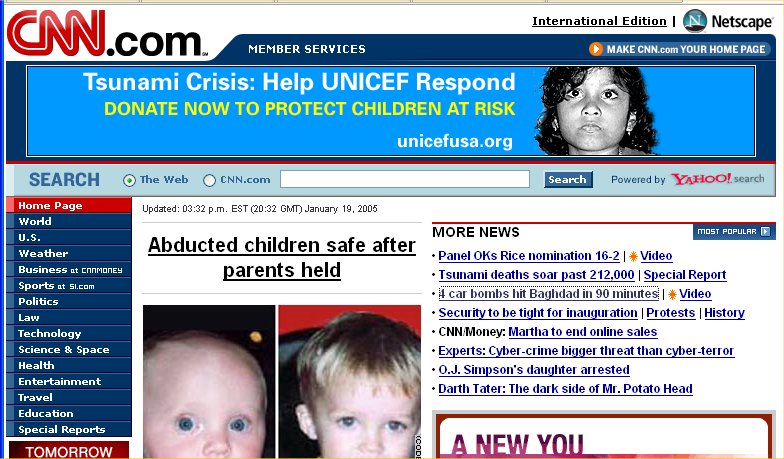Blunt wants tough curbs on cold pills used in meth:
Missouri may soon be stepping up its war on methamphetamine. Gov. Matt Blunt announced Friday that he wants the state to join Oklahoma and Oregon in enacting tough restrictions on the sale of the most popular over-the-counter cold remedies.
Under Blunt’s plan, consumers who want to buy cold pills containing pseudoephedrine could get them only at pharmacies, and purchasers would have agree to have their identities recorded in a police database.
Decongestant pills containing pseudoephedrine can be a cold sufferer’s dream or a narcotics investigator’s nightmare. The medications, which are available everywhere from service stations to hotel vending machines, are easy to convert to meth and in recent years have fueled an explosion in illegal drug manufacturing.
This twisted logic represents the same ill thinking demonstrated by people who favor gun control. You see, if we make it harder to legally acquire something used by criminals, we’ll make fewer criminals. In this case, it’s Sudafed. Next, to defeat child pornography, people will have to register their digital cameras. Why not? What have you got to hide?
Of course, making it harder for criminals to get the legally-ownable things they need will not prevent the criminals from getting their Sudafed. It will mean that criminals will have to get their meth ingredients by illegal means, such as burglary, armed theft, and hijacking Walgreens trucks. Ergo, Governor Blunt is in favor of more violence in the war on drugs.
At the very least, the nonviolent meth cookers in Missouri will cross state borders to buy their gross cases of cold remedies, which means those other states will get the sales tax.
The proposition is lose/lose/lose/lose. The cold sufferer loses because it’s harder to get legal remedies. The public, particularly pharmacies, loses as criminals resort to more violent means than commerce to acquire that which they will acquire anyway. Tax spenders, that is, the legislature loses the revenue of legitimate commerce. Finally, the taxpayers lose as they have to fund a new apparatus to support the initiative.
On the other hand, some do win from the proposition. A database provider will make some money. The governor will look tough. Small town pharmacies in border towns outside Missouri might prosper. There’s your half full paragraph for the evening.





